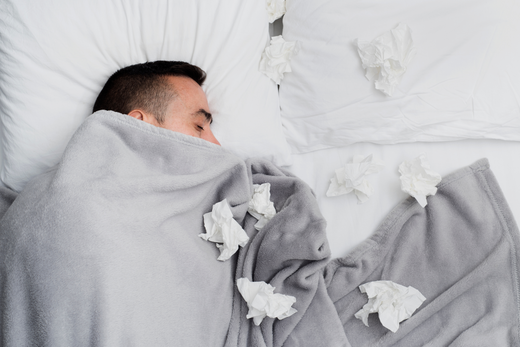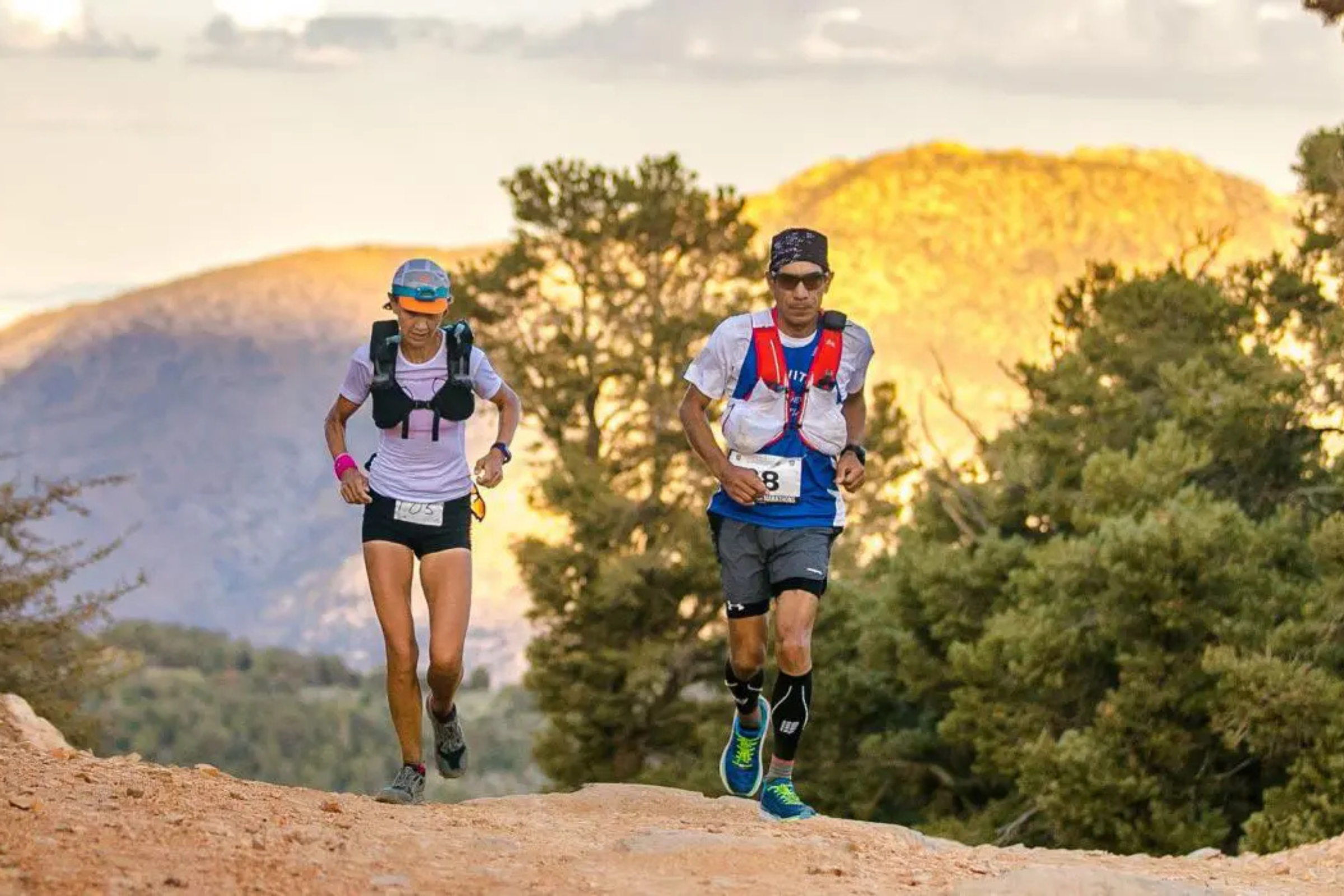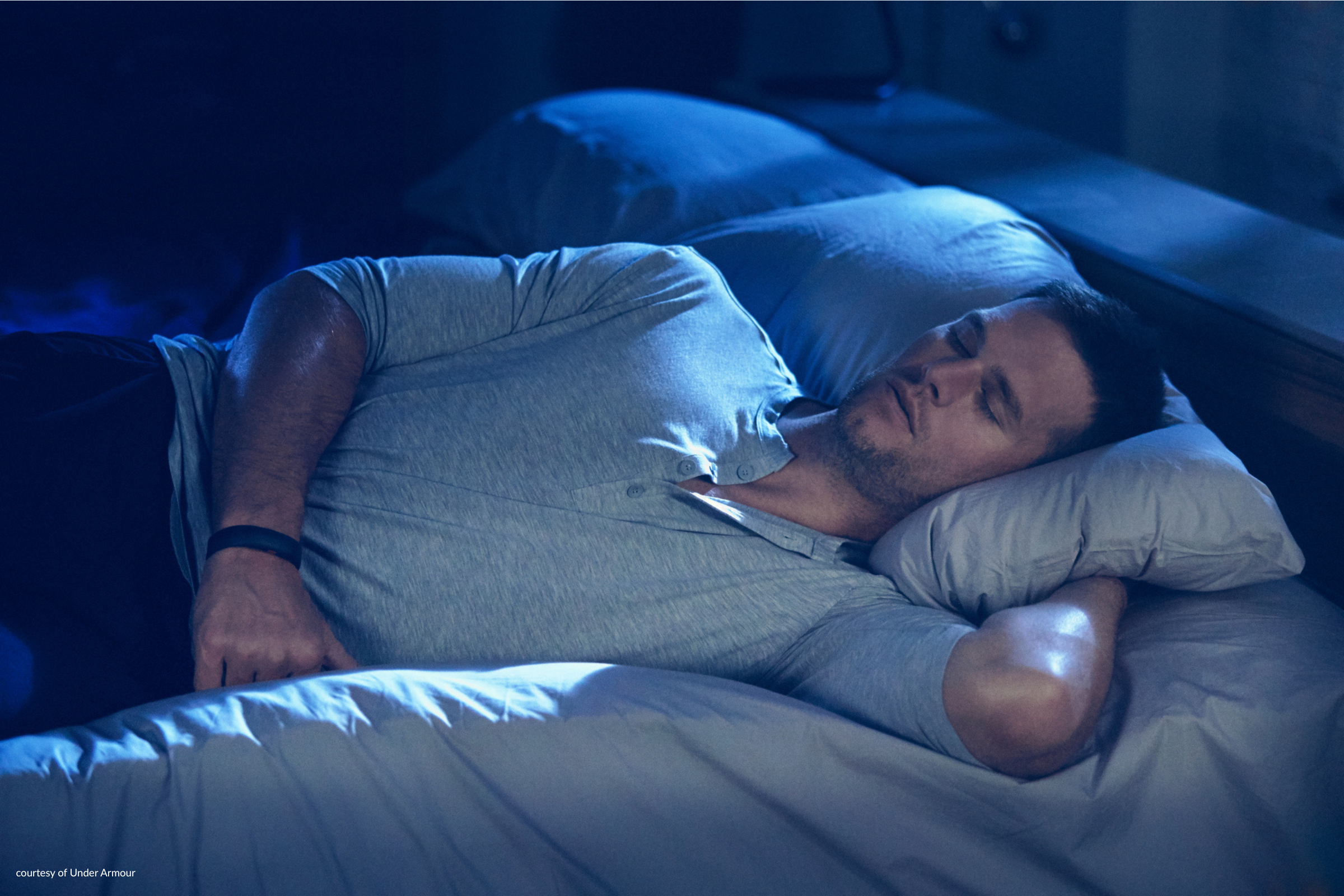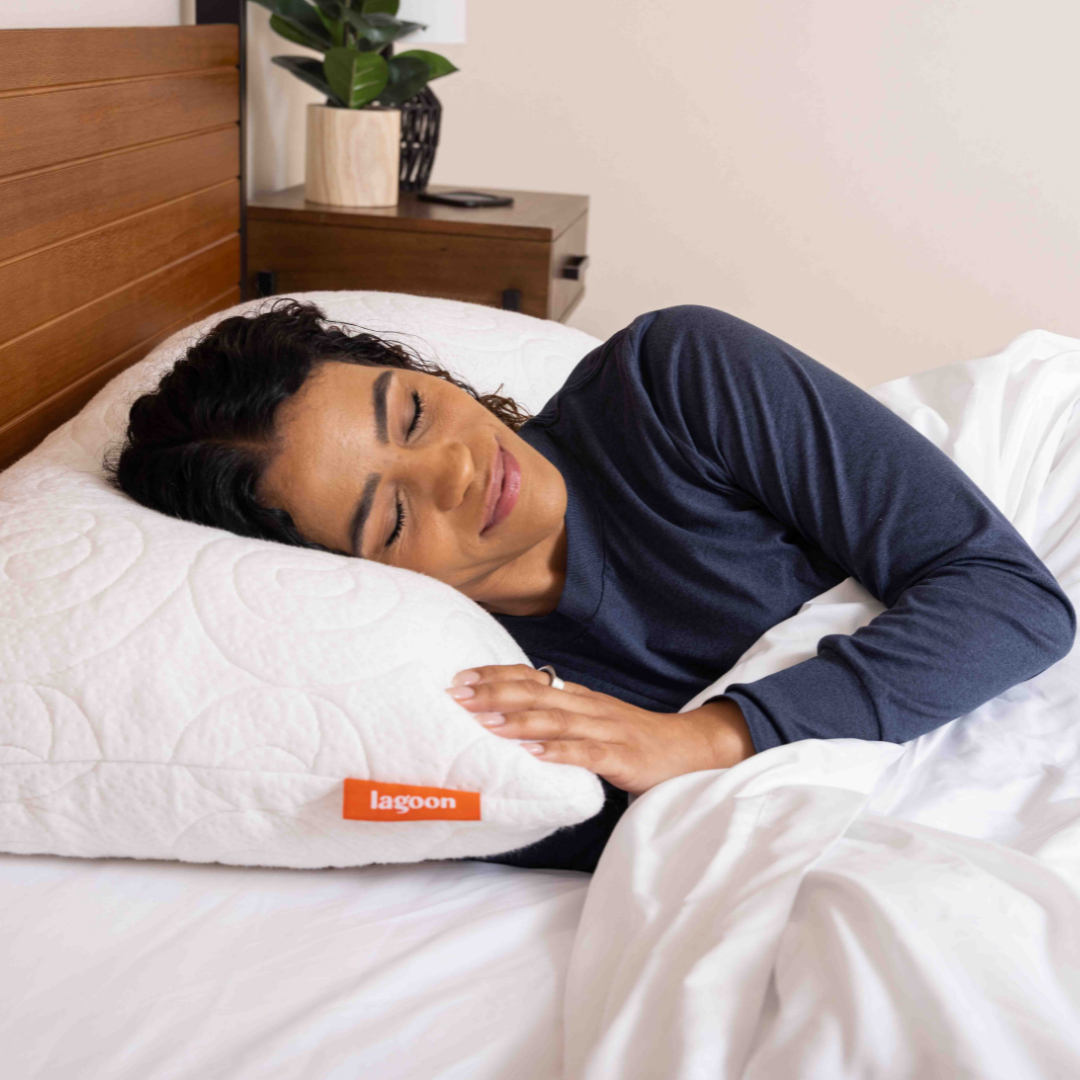This winter it seems as though the dreaded wave of colds, stomach bugs, and other illnesses making their rounds is even more severe than normal. If you’re like me, it’s been a bit of a ride already - our 11-month-old brought home norovirus from daycare, and then I got hit with a nasty cold the week after. Through all of it, I was reminded just how powerful sleep can be as a recovery tool. So let’s look more deeply at why sleep matters so much when you’re fighting off sickness, how to balance extra rest with staying active, and what you can do to recover faster when you inevitably catch something.
The Science of Sleep and Immunity
When you sleep, your body does more than just recharge your energy - it shifts into recovery mode. Specifically it produces infection-fighting proteins like cytokines, repairing cells, and bolstering your immune system. These cytokines are crucial because they help your body target and attack infections. Without enough sleep, your immune system becomes less effective, leaving you more vulnerable to catching whatever’s going around.
Research backs this up, showing that people who regularly get less than six hours of sleep are more likely to catch colds than those who get seven or more hours. A study from Carnegie Mellon found that individuals who slept fewer than six hours were four times more likely to catch a cold than those who got at least seven hours of shut-eye. It’s not just about avoiding illness though, as sleep also plays a critical role in how quickly you recover if you do get sick.
When you’re asleep, your body ramps up the production of certain immune cells, including T-cells, which are responsible for targeting and destroying infected cells. Sleep also aids in reducing inflammation, which is why you often feel worse when you’re sleep-deprived and sick. Simply put, sleep is the ultimate recovery tool that your body relies on to keep you healthy and to help you bounce back when you’re under the weather.
A Tale of Two Illnesses: Norovirus vs. The Cold
Let’s take a look at my last two weeks as a real-world example of how sleep impacts recovery. First up - norovirus. If you’ve had it, you know that it hits like a freight train. There were no advanced warning signs, no subtle clues from how I felt or even from my sleep data. One day I was fine, and the next I was completely drained, had severe chills, and couldn’t keep anything down.
The day it hit me hardest, I took an afternoon nap (a rarity for me) then went to bed early and logged nearly 10 hours of sleep that night. The result? By the next day, I was already starting to feel like myself again. Within 48 hours, I was back to almost full strength. That’s the power of prioritizing rest when your body is fighting off something intense.
Now, compare that to the cold I caught the following week. This one was more of a slow burn. It crept up over a few days, gradually sapping my energy. The congestion and throat irritation made sleeping more difficult - I’d wake up in the middle of the night feeling uncomfortable and restless. I didn’t have the energy for my usual workouts, so I made a conscious decision to adjust. I took a full day off, then switched to light activity for a few days - 30 minutes of easy spinning on the Peloton - just to maintain some fitness and sanity without overtaxing my body.
In addition to scaling back my workouts, I made it a point to get extra sleep each night. Even just 30 to 60 minutes more than usual made a noticeable difference in how I felt the next day. By day five, I’m almost symptom-free and ready to get back to my regular workout routine. The lesson here? Listening to your body and giving it the rest it needs can make a huge difference in how quickly you recover.
Rest vs. Exercise: Striking the Right Balance
When you’re sick, it’s tempting to push through and stick to your usual routine. Maybe you’re worried about losing progress in your fitness journey, or maybe you just don’t like the idea of slowing down. When I was younger I was a big culprit of trying to push through the sickness, but now in my “wiser” years, I’ve found that by pulling back for a few days I actually recover and get back to full strength much more quickly.
That is because exercise is a stressor. Under normal circumstances, that’s a good thing - it challenges your body, makes you stronger, and improves your overall health. But when you’re sick, your body is already under stress as it fights off infection. Adding intense workouts to the mix can overburden your system and delay recovery.
That doesn’t mean you have to avoid all activity, though. Light movement, like walking or gentle yoga, can actually help boost circulation and reduce stiffness, which might make you feel better. The key is to pay attention to how you’re feeling. If you’re completely wiped out, prioritize rest. If you have a bit of energy, stick to low-intensity activity and focus on getting extra sleep to support your recovery.
The Role of Sleep in Symptom Management
One of the toughest parts of being sick is dealing with symptoms that disrupt your sleep. Congestion, a sore throat, or chills can make it hard to get comfortable, and poor sleep can leave you feeling worse the next day. Here are a few tips to improve your sleep quality when you’re not feeling well:
-
Elevate Your Head: If congestion is an issue, try propping yourself up with an extra pillow to help drain your sinuses and make breathing easier.
-
Stay Hydrated: Dehydration can make symptoms like a sore throat or headaches worse, so drink plenty of water throughout the day.
-
Use a Humidifier: Adding moisture to the air can soothe irritated airways and reduce coughing.
-
Keep Your Bedroom Cool: A slightly cooler room temperature can help regulate your body’s temperature and promote better sleep.
-
Stick to a Sleep Schedule: Even when you’re sick, try to go to bed and wake up at the same time each day to maintain your body’s natural rhythm.
Sleep as a Long-Term Investment in Health
Studies have shown that chronic sleep deprivation can weaken your immune system over time, making you more susceptible to infections, inflammation, and even chronic conditions like heart disease and diabetes. On the flip side, consistently getting enough high-quality sleep can improve everything from your mood to your athletic performance.
For those of us who care about optimizing our fitness and overall health, prioritizing sleep isn’t optional - it’s essential. Think of it as the foundation upon which everything else is built. Without it, you’re working with a compromised system, whether you’re trying to fend off a virus, recover from a tough workout, or simply show up as your best self each day.
Fight the Good Fight
Winter illnesses are inevitable, especially if you’ve got kids or spend a lot of time around other people. But how you respond when sickness strikes can make a huge difference in how quickly you recover and how severe your symptoms are. By listening to your body, prioritizing extra rest, and making smart adjustments to your routine, you can give yourself the best possible chance of bouncing back quickly. So the next time you’re feeling under the weather, take it as an opportunity to double down on sleep - your body will thank you!







